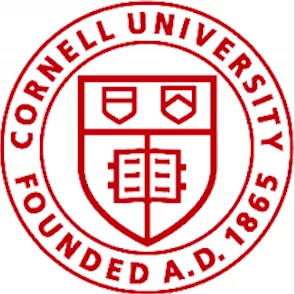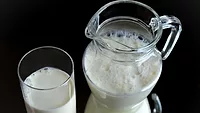IBM and Cornell Team Up to Research Global Milk Safety

IBM and Cornell University will be joining forces in a new collaboration in the name of food safety.
Both entities will be using next-generation sequencing and bioinformatics in an effort to help reduce safety issues with the world’s milk supply.
Although Cornell has long been a leader in dairy research, this new joint venture allows the institution to become the newest of its kind to join the Consortium for Sequencing the Food Supply Chain. This existing food safety initiative already includes IBM Research, Mars, Inc. and Bio-Rad Laboratories, Inc.
At the center of the Consortium’s focus will be raw milk--often transformed into pasteurized milk for drinking, infant formula, cheese, yogurt and other plenty of other food products. Under normal circumstances, raw milk samples are tested for specific types of bacteria. Now, the Consortium will be using the community of microbes or bacteria known as the microbiome to characterize the food samples at an unprecedented resolution. By sequencing and analyzing the DNA and RNA (genetic code) of food microbiomes, researchers plan to create new tools that can help monitor raw milk to detect anomalies that represent food safety hazards and possible fraud.
By doing this, researchers will be able to better decipher between normal and abnormal activity in food ingredients.
While many food producers already have rigorous processes in place to ensure food safety hazards are managed appropriately, this pioneering application of genomics will be designed to enable a deeper understanding and characterization of microorganisms on a much larger scale than has previously been possible. Consortium researchers will conduct several studies comparing the baseline data of raw milk with known anomalies to help create proven models that can be used for additional studies. They will continue to provide innovative solutions that can potentially minimize the chance that a food hazard will reach the final consumer and provide a tool to assist against food fraud.
The research project will collect genetic data from the microbiome of raw milk samples in a "real-world" scenario at Cornell's Dairy Processing Plant and farm in Ithaca, N.Y. The facility is unusual in that it represents the full dairy supply chain – from farm to processing to consumer. This initial data collection will form a raw milk baseline and be used to further expand existing Consortium bioinformatic analytical tools.
Looking for quick answers on food safety topics?
Try Ask FSM, our new smart AI search tool.
Ask FSM →
For more information about the Consortium visit: Sequencing the Food Supply Chain.
Sign up for Food Safety Magazine’s bi-weekly emails!
Subscribe to our new podcast: Food Safety Matters!






